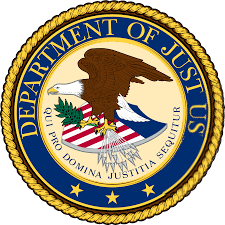Various pundits have been warning for a while now that if President Trump fires Special Counsel Robert Mueller, he would trigger a so-called “Constitutional crisis,” but perhaps such a serious situation already existed before either of them assumed their current offices.
Indeed, nowadays it seems fair to ask, is the Department of Justice (DOJ) a part of the Executive Branch or does it stand apart from it? And where are the Constitutional checks and balances that are supposed to prevent the Department from abusing its considerable power?
Ultimately, if those Constitutional limits are ineffective, then did the Justice Department essentially transform itself into a new and out-of-control 4th branch of government, plunging America into a “Constitutional crisis” years ago? Read below and vote on Facebook here or Twitter here.
Every schoolchild who takes an American History class learns that the Founders enshrined a system of checks and balances into the Constitution so that the power of each of the three branches of government, legislative, executive, and judicial, is held under control by the other two.
As a part of the Executive Branch, the DOJ is thus supposed to report to the president while also being subject to effective oversight by Congress and the courts.
However, the DOJ clearly defies answering to either the Oval Office or the legislature. Amongst other things, it rebels against the president’s clear Constitutional oversight prerogative under Article II while it stonewalls legitimate Congressional subpoenas as the deputy attorney general issues thinly-veiled threats about taking obvious revenge on legislators through abusing his own subpoena power. To justify this, the DOJ claims that it needs independence from both the president who appoints its leadership and the representatives who allocate its funding.
Further, the Justice Department effectively doesn’t answer to the courts either, i.e. to the judicial branch, as one might expect. For example, the courts have no say over how the DOJ exercises its prosecutorial discretion, i.e. who it does or doesn’t charge. So there was no judge to whom to appeal in 2016, when then—FBI-Director James Comey decided that it would be unreasonable to pursue a case against Hillary Clinton after one of her political allies made a $675,000 campaign donation to the wife of then--Deputy-FBI-Director Andrew McCabe while McCabe was theoretically examining emails from the Clinton State Department. Similar grievances were also aired after former Attorney General Eric Holder declined to prosecute his fellow financial insiders after the 2008 financial crisis.
Other powers which the DOJ wields unilaterally have expanded over time and include its near-instantaneous, warrantless access to an ever short-growing trove of personal information like the fingerprints, DNA, and other biometric data of an ever-increasing number of citizens who have never been convicted of any crime as well as the Department’s ability to deceive judges, juries, and the public by planting stories in the media and then capitalizing on them, as Representative Mark Meadows (R-NC) recently revealed.
But perhaps the DOJ’s most audacious manipulation thus far has been convincing a sufficient cross section of America that there is an unwritten yet nonetheless supreme law, one that would have to be on par with a Constitutional Amendment, which supposedly dictates that the DOJ is the only part of the government exempt from Congressional oversight and executive prerogative. Even though this concept is clearly a Constitutional contradiction which has never been applied in any other case, under this imaginary rule Americans are apparently expected to believe that the U.S. must follow suit with other nations and therefore the DOJ must not be subject to the system of real time checks and balances which the Founders specifically designed to differentiate America from the tyranny of others by ensuring that no part of the federal government spirals out of control.
This DOJ narrative is as dangerous as it is wrong and self-serving and this rule remains unwritten for good reason. In contrast, the Founders imbued the House of Representatives with the “sole Power of Impeachment” in writing in Article I, where they also explicitly and intentionally specified that the Senate “shall have the sole Power to try all Impeachments.” Further, each House has the power to punish and even expel its own members.
Tellingly, even after the 1967 ratification of the Twenty-Fifth Amendment, which allows the vice president and the cabinet to declare that the president is unable to perform his duties, the DOJ’s unwritten independence rule has remained unratified.
Simply put, overseeing the appointed leadership of the DOJ is the well-established role of the elected Executive and Legislature, who each in turn check and balance themselves and each other before ultimately answering directly to voters. It is not within the DOJ's purview to reciprocate this scrutiny, as evidenced by the existence of various forms of presidential and Congressional immunity. Unfortunately, America entered a real Constitutional crisis as soon as these roles were reversed, leaving the DOJ unchecked.
Polls asking, "Is an unchecked DOJ already causing a 'Constitutional crisis'?" are open on Facebook here and Twitter here.
The author, Marty Gottesfeld is an Obama-era political prisoner. To learn more about his case or donate to support him, please go to FreeMartyG.com.

 Donate Now
Donate Now
 Follow
Follow 
